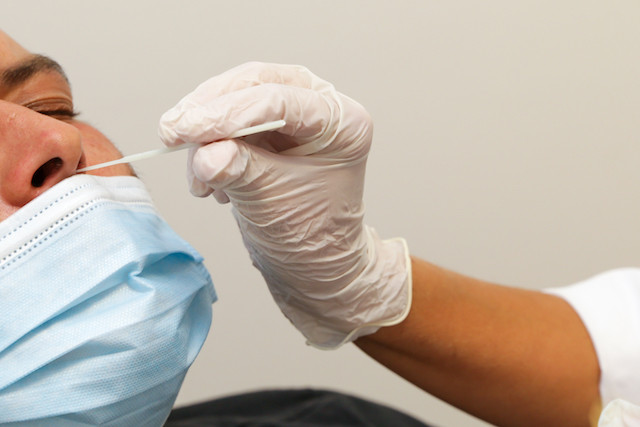The 12-month Con-Vince study of 1,800 individuals aims to examine the dynamics of the spread of the virus, with a specific focus on asymptomatic and mildly symptomatic patients.
First launched in April 2020 under the aegis of the Research Luxembourg covid-19 taskforce, the study will this month start the last round of tests with participants.
“The final wave will provide a comprehensive insight into the evolution and transmission of the disease over an extended timeframe, particularly from an immunity perspective,” Luxembourg’s Institute of Health said in a statement.
The last round of testing will begin 19 April and run for up to six weeks. All participants will receive a nasopharyngeal swab. Blood and stool samples will also be collected once as part of these follow-up visits, with the support of the laboratories Ketterthill, Laboratoires Réunis, Bionext Lab, as well as of LIH and Laboratoire National de Santé (LNS) as associated partners for biospecimen collection. Biological sampling will be complemented by collecting additional information on confinement measures and vaccination through short follow-up questionnaires conducted by TNS-Ilres.
“We are expecting to obtain crucial information from this annual follow-up, particularly as pertains to the persistence of the antibody response over a full year. Moreover, this last visit will also allow us to analyse cell-based immunity, thereby giving us a more complete picture of the global immune response against the novel Sars-CoV-2”, said Prof Rejko Krüger, coordinator of Con-Vince, in a press release.
The first phase of the study found that five out of the 1,800 participants (0.3%) tested positive for the virus. According to an LIH statement, the five people were asymptomatic or presented only mild symptoms.
Con-Vince is led by a consortium of Luxembourg research institutions, including LIH, the Integrated Biobank of Luxembourg (IBBL), the Luxembourg Centre for Systems Biomedicine (LCSB) at the University of Luxembourg and the Laboratoire National de Santé (LNS), with the support of the market research company TNS-Ilres for the selection of participants and of the national diagnostic laboratories Ketterthill, Laboratoires Réunis and BioneXt Lab as associated partners for sample collection.
The study is co-funded by the Luxembourg National Research Fund (FNR) with an amount of € 1.4m and by the Fondation André Losch through a financial commitment of €800,000.
